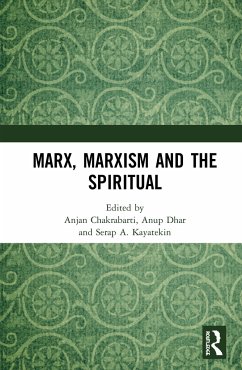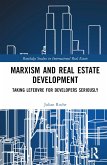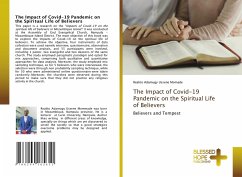While Marxian theory has produced a sound and rigorous critique of capitalism, has it faltered in its own practice of social transformation? Has it faltered because of the Marxian insistence on the hyper-secularization of political cultures? The history of religions - with the exception of some spiritual traditions - has not been any less heartless and soulless. This book sets up a much-needed dialogue between a rethought Marxian praxis of the political and a rethought experience of spirituality. Such rethinking within Marxism and spirituality and a resetting of their lost relationship is perhaps the only hope for a non-violent future of both the Marxian reconstruction of the self and the social as also faith-based life-practices. Building on past work in critical theory, this book offers a new take on the relationship between a rethought Marxism and a rethought spirituality (rethought in the life, philosophy and works of Christian thinkers, anti-Christian thinkers, Marxian thinkers, those critical of Marxist Statecraft, Dalit neo-Buddhist thinkers, thinkers drawing from Judaism, as well as thinkers drawing critically from Christianity). Contrary to popular belief, this book does not see spirituality as a derivative of only religion. This book also sees spirituality as, what Marx designated, the "sigh of the oppressed" against both social and religious orthodoxy. In that sense, spirituality is not just a displaced form of religion; it is a displaced form of the political too. This book therefore sets up the much needed dialogue between the Marxian political and the spiritual traditions. The chapters in this book were originally published in Rethinking Marxism - A Journal of Economics, Culture and Society.
Hinweis: Dieser Artikel kann nur an eine deutsche Lieferadresse ausgeliefert werden.
Hinweis: Dieser Artikel kann nur an eine deutsche Lieferadresse ausgeliefert werden.








